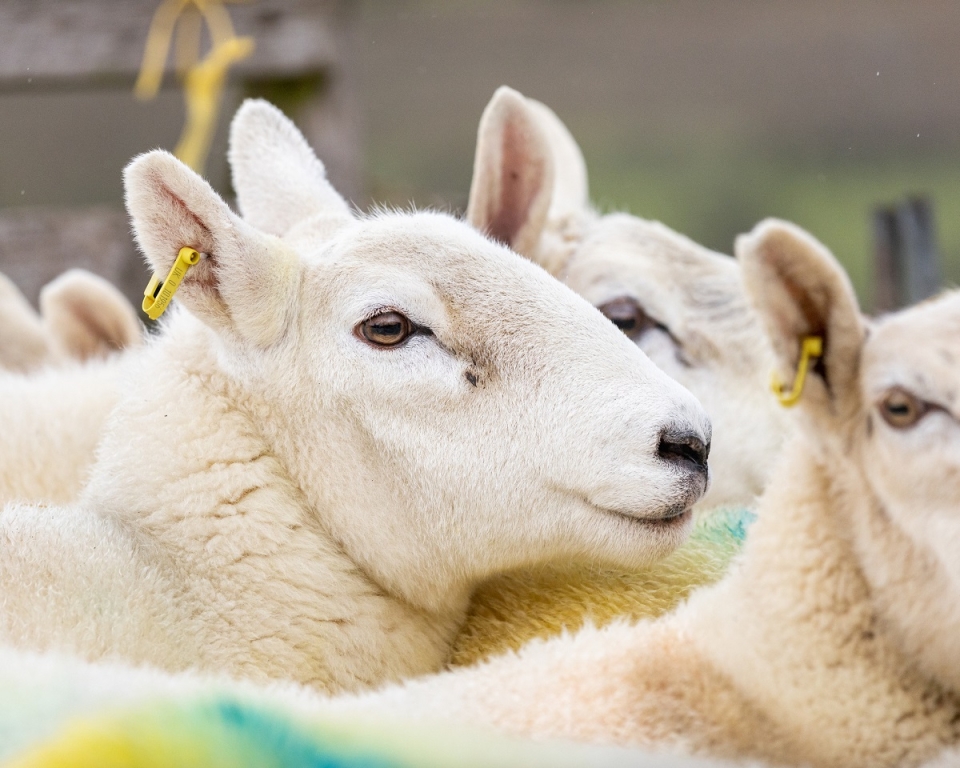
Final results will be obtained later in 2024
University Of Edinburgh Farm Resident Support For Sheep Mastitis Project
In collaboration with CVS, a resident in European College of Small Ruminant Health and Management (Alberto Luque Castro) and colleagues at the University of Edinburgh (supervisors Prof Alastair Macrae and Prof Neil Sargison in Farm Animal Services) are conducting a pilot study on subclinical mastitis and its dynamics between lactations in meat producing sheep.
The main aims of this research are to investigate whether:
- Ewes without gross lesions on the udder are sub clinically infected at weaning.
- Such subclinical infections are self-cleared during the dry period.
- New infections are acquired during the dry period.
- Ewes with subclinical mastitis at weaning and/or at lambing are likely to develop signs of clinical mastitis during lactation.
The project is being carried out on a single flock of 300 Cheviot cross breeding ewes with historically high reported incidence of mastitis. The data and milk samples are collected at two time points: weaning (summer 2023) and lambing (spring 2024).
Follow up data on clinical mastitis (acute and chronic) will be collected throughout the lactation and at the next weaning. Milk samples from each udder half will be submitted for somatic cell counts (SCC). Bacteriology will be performed only in the samples with SCC above the established threshold (according to previous literature).
The main outcomes will be:
- Incidence proportion of chronic clinical mastitis at ewe level.
- Prevalence of subclinical mastitis at udder half and ewe level.
- Reliability on using only SCC to determine a positive case of subclinical mastitis.
- Spontaneous cure rates, new-infection rates, and chronic cases rates between the sample points.
The preliminary results showed that the incidence of chronic mastitis (ewes with lumps) at weaning was almost 7% (15/226). However, 40% (80/205) of the sampled ewes had at least one udder half with a SCC result above the cut off of 500.000 cells/ml, suggestive of intramammary infection.
Further analysis of the data is being carried out and final results will be obtained later in 2024.
CVS Farm division has over 120 vets in 15 modern farm specific practices nationwide. Our practices offer a comprehensive range of services with a focus on helping our clients prevent disease and maximise efficiency of production on their farms. Our collective buying power enables us to assist our clients with the most cost effective solutions to all their animal medicine requirements. To find out more about our Farm veterinary practices, visit: Farm Practices | CVS Group (episerver.net) .
More from CVS UK Ltd
- Lumbry Park referrals recruits new Hospital Director
- World-wide study reveals new clinical insights into feline hypoadrenocorticism
- CVS upskills RVNs to undertake diagnostic imaging in practice
- New research evaluates use of 3D-printed guide for treatment of distal tibial varus deformity
- Falmouth vets recognised for outstanding work

 5 months ago
5 months ago  547 views
547 views

 17 hours ago
17 hours ago